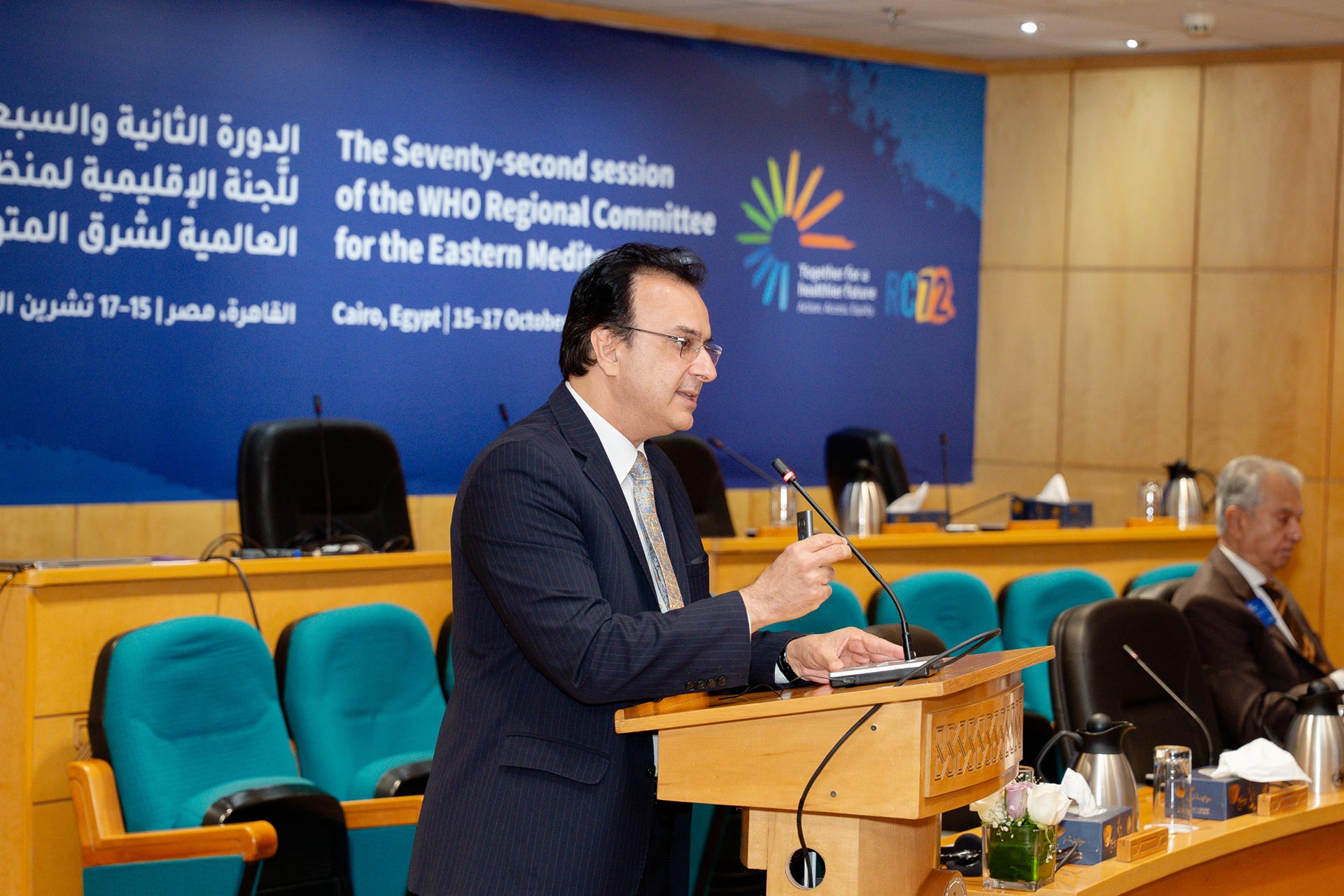Delegates emphasize the need for collective vision and cohesive action to rebuild health systems in countries affected by war and protracted conflict
 16 October 2025, Cairo, Egypt — Member States across the Eastern Mediterranean Region adopted a resolution on health systems recovery in fragile and conflict-affected situations at the Seventy-second Regional Committee meeting in Cairo, Egypt. They stressed that advancing recovery and rebuilding health systems in countries affected by war and protracted conflict requires collective vision and cohesive action.
16 October 2025, Cairo, Egypt — Member States across the Eastern Mediterranean Region adopted a resolution on health systems recovery in fragile and conflict-affected situations at the Seventy-second Regional Committee meeting in Cairo, Egypt. They stressed that advancing recovery and rebuilding health systems in countries affected by war and protracted conflict requires collective vision and cohesive action.
Delegations emphasized a humanitarian–development–peace nexus approach to enable an effective transition from emergency response to recovery, and underscored that sustainable recovery requires a clear strategy and predictable long-term financing. More stable countries in the Region were urged to support and oversee implementation of the resolution, reinforcing regional solidarity.
Amendments to the resolution included provisions for securing financial support for health system recovery and resilience-building.
Member States highlighted pressing challenges that require unified action, including brain drain of the health workforce, the urgent need for continued, equitably distributed medical supplies and the integration of psychosocial support throughout recovery efforts.
They also called for people-centred, community-based health care and the responsible use of digitisation and artificial intelligence to improve services. Additionally, mental health services, trust-building, transparency and social justice were identified as central to fostering resilience, preparing communities for crises and advancing health security and universal health coverage.
Member States and partners underlined the importance of WHO technical assistance for recovery in fragile and conflict-affected situations. The resolution requested that the Regional Director establish a regional coordination platform to coordinate recovery efforts and bring countries together to share experiences and expertise.
Independent medical organizations, including those focused on cancer and haemophilia, supported the resolution and contributed to the discussions, as did federations representing medical students and self-care.
Building back better
Health systems recovery is a strategic necessity. It involves not just restoring what was lost but reimagining and rebuilding systems that are stronger, more equitable and capable of withstanding past realities and future shocks, tailored to country and community needs.
Health system recovery is a bridge to peace. Equitable and resilient systems contribute to state legitimacy and community trust, helping to repair the social fabric torn by crises. When recovery efforts are inclusive, nationally led, and responsive to local needs, they help mitigate the drivers of fragility and conflict. Health care becomes not just a service then, but the foundation for reconciliation, resilience and long-term peace.
Acknowledging the scale of the challenge, the resolution advocates for a build back better approach which addresses immediate needs and the underlying drivers of conflict and fragility while simultaneously advancing universal health coverage and health security.
Translating consensus into action
Resolutions, however, are not enough. What is needed now is political will, sustained financing and for Member States, WHO and partners to act – particularly in complex and neglected settings – to support stability in conflict-affected countries.
The Eastern Mediterranean Region has demonstrated that recovery is possible even amid deep fragility. The task now is to ensure recovery processes are institutionalized, planned and well resourced.








